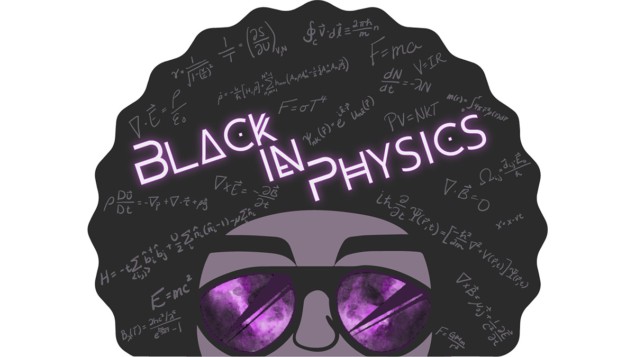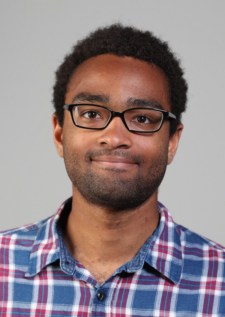Physics World is delighted to be taking part once again in #BlackInPhysics week, supporting and showcasing the contributions of Black physicists, writes editor-in-chief Matin Durrani

In October 2020 Physics World took part in the first ever #BlackInPhysics week, an event dedicated to celebrating Black physicists and revealing a more complete picture of what physicists look like.
This year’s #BlackInPhysics week runs on 24–30 October 2021 – and we’re delighted to be involved once again. In partnership with the organizers of #BlackInPhysics week, we’ll be co-publishing with Physics Today a series of five essays by Black physicists at different stages of their careers.
The focus of the essays will be on burnout in physics: how the problem manifests itself, how researchers can deal with it and (ideally) avoid burnout in the first place.

First up is Garrett Williams, a PhD student at the University of Illinois in the US, who is finding ways of using laser-cooled atoms as qubits for quantum computing.
Speaking to Margaret Harris on the latest episode of the Physics World Weekly podcast, Williams defines burnout as “a crippling experience where your passion starts to turn into sources of stress”.
In his case, it arose because Williams originally started his university career studying chemistry and, once in grad school, had to grapple with new, tricky and difficult concepts.
It didn’t help that at conferences he’d often be the only Black physicist in the room, with no role models or mentors to look up to. “It was very stressful for me and I started to question my place in physics,” Williams recalls.
I want to dispel the belief that physics is something that only certain people can do.
Garrett Williams, University of Illinois
Check out the podcast and Williams’ essay, which will be published later today, to discover his strategy for dealing with burnout. One tactic is keeping a journal to remind himself of what he’s good at.
Another is to do lots of outreach work, thereby helping the wider community too. “I want to dispel the belief that physics is something that only certain people can do,” he says. “Physics is universally hard, but it’s rewarding because it’s hard.”
For the record, here’s a list of upcoming essays in #BlackInPhysics week 2021, which will be published simultaneously on both the Physics World and Physics Today websites.
Celebrating Black physicists
- 25 October 2021 Garrett Williams, University of Illinois
- 26 October 2021 Katrina Miller, University of Chicago
- 27 October 2021 Danielle Speller, Johns Hopkins University
- 28 October 2021 Larry Gladney, Yale University
- 29 October 2021 Gibor Basri, University of California, Berkeley
Other events during #BlackInPhysics week 2021 include a three-minute thesis competition, a “self-care cooking class”, a job fair, as well as webinars on avoiding burnout as you become a grad student and as you seek to become a professional physicist.
You can see the full list of events here.
- For more on #BlackInPhysics week, including all the essays by outstanding Black physicists, please visit the dedicated pages at Physics World and Physics Today.




